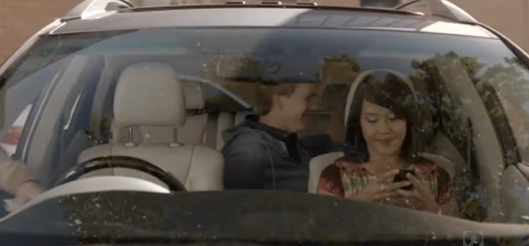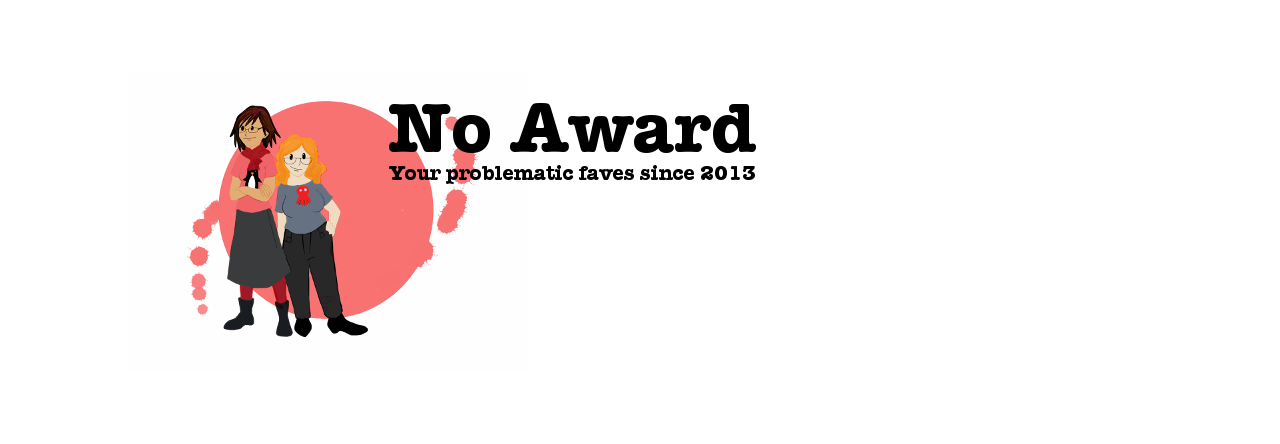Say you’re lucky enough to get the beautiful and talented and adorable real-life doctor AND actress, Australian-born Renee Lim [1] in your new comedy show (which is relatively funny – I laughed a lot). Do you let her natural comedy stylings shine with the words, completely unrelated to race, that you have in your script?
Or do you cast her has the heavily-accented, heavily made-up, younger Thai girlfriend of your midlife crisis white father?
GEE. I just don’t know! It’s so hard to decide! Both options are so excellent!

Aside from her accent and her heavy bangles, Mae isn’t even Thai – as if bangles and an accent defines a Thai woman. She could totally be Chinese-Australian! (Or Thai-Australian even though I have issues with the pan-Asian identity – but not a brand new immigrant) Later the series looks at the playful mockery that is part of the “Asian” mindset. She could totally be Chinese-Australian!
It’s not the show I have a problem with – it’s that this is how Australia sees its South East Asian women.
This is not new. South-East Asian Australian women have long been presented as sexual objects, and as objects of ridicule (within a sexual sphere or with a sexual component).
In 1994 we were subjected to Cynthia, played by Juliet Perez[2], who was born in Australia. Cynthia was “a gold-digger, a prostitute, an entertainer whose expertise is popping out ping-pong balls from her sex-organ, a manic depressive, loud and vulgar. The worst stereotype of the Filipina.” [3] She was heavily accented and frustratingly other, laughable and deplorable and completely unable to be related to.
Her Thai-ness, much like Mae’s Thai-ness, was completely unnecessary; it was defended by producer Al Clark as “a misfit like the three protagonists are, and just about everybody else in the film is, and her presence is no more a statement about Filipino women than having three drag queens is a statement about Australian men,” which, uh, fuck that shit, Al, because white Australian males are the very definition of the Australian man, but I don’t see the reverse being true about heavily accented Filipino Australian women in small desert towns, completely separated from their communities and cultural networks. Do you?
Representations of South East Asian women outside of Australia (but still connected to Australians) only reinforce this. Turtle Beach, set in Malaysia, features my beloved Joan Chen as Minou, a Vietnamese woman married to the Australian ambassador. During the movie she sacrifices herself for her children, because South-East Asian women are self-sacrificing for the family, I can only assume. [4]
In Serangoon Road (we all know how I feel about that by now), all the South East Asian women are completely separate from the Australians – there are no SEAzn Australian women in Serangoon Road, which is woah quite the factual error. Maybe my beloved Pamelyn Chee is about to get it on with an American played by an Australian, which is another issue but the point remains.
South-East Asian women on Australian TV can’t be Australians. They’re always from somewhere else; they’re always othered and markedly different. Ien Ang [5] suggests that this is also in part to present a safe multiculturalism to Australians – some SEA women can be Australian, but they’re still markedly different.
The ABS doesn’t give me the data on percentage of Australians who were born in Australia but are of SEA origin/descent/ethnicity (or if it does I’m not able to work it out). But look around your life. How many SEAzn women do you know who look like this, who act like this? Because fuck if I do (I don’t). I have a broad, hilarious Australian accent (except when I’m talking to my mother) and there’s no way I’m sacrificing myself.
This cultural stereotyping for the purposes of entertainment (AND WRONGNESS) is by no means limited to us South-East Asian ladies. There is (was) one non-Anglo Aussie on Packed to the Rafters and his family is played for stereotypical Greek family laughs [6]; Benjamin Ng talked Gangnam Style and the stereotyping of Asian males in the Drum last year [7]; Hany Lee came on board Neighbours as an exchange student (rather than, say, a Korean-Australian) – despite being born in Australia.[8]
If we seek to see ourselves, reflections of ourselves, and actual realities in our media, then Australian media is obviously not presenting us with that, and it’s for a whole lot of reasons. There’s a whole lot of stuff to say here about authenticity, perceived authenticity (and inauthenticity), accepted stereotypes, racism and the Australian identity, but it’s late and you’ve heard it all before. Priscilla, Queen of the Desert was 19 years ago, and was hardly even the first cut, and here we are with Mae in 2013, migrating to Australia with her bangles clacking, loving her old white man long time. The Australian identity, if it exists, contains multitudes, and it’d be nice if I wasn’t injured by trying to find it in my Australian media.
PS I’m authentic even when I’m not speaking Manglish at a clip.
Further Reading:
This seems creepy, but Ben Law’s thesis http://eprints.qut.edu.au/29272/2/Benjamin_Law_Thesis.pdf
Asian Women in Australian Soap Operas: Questioning Idealized (sic) Hybrid Representation, Monika Winarnita, Asian Social Science Vol 7, No 8, August 2011. available at: http://www.ccsenet.org/journal/index.php/ass/article/download/11487/8052 …
Footnotes and References
[1] Renee Lim interview with Asians on Film, Asians on Film, (no pub date) accessed 27/10/2013 available at http://www.youtube.com/watch?v=C9xEbHDOwuk*
* WATCH HER IN THE NEWTOWN GIRLS, SHE’S ADORABLE AND QUEER
[2] JULIET PEREZ PLAYED RITA REPULSA IN THE MIGHTY MORPHIN POWER RANGERS MOVIE IN 1995 HELP HELP AMAZING (imdb)
[3] More Than Just a Laugh: Assessing the Politics of Camp in The Adventures of Priscilla, Queen of the Desert, Ann-Marie Cook, (no pub date) accessed 27/10/2013 available at http://www.academia.edu/370668/More_Than_Just_a_Laugh_Assessing_the_Politics_of_Camp_in_The_Adventures_of_Priscilla_Queen_of_the_Desert
[4] The sacrificial Asian in Australian film, Olivia Khoo, real time 59, feb-mar 2004, pp15, accessed 27/10/2013 available at http://www.realtimearts.net/article/59/7336
[5] Ien Ang, quoted in Asian Women in Australian Soap Operas: Questioning Idealized (sic) Hybrid Representation, Monika Winarnita, Asian Social Science Vol 7, No 8, August 2011. pp4.
[6] All-white Australian television fails the reality test, Melissa Phillips, The Age, February 17 2012, accessed 27/10/2013 available at http://www.smh.com.au/federal-politics/society-and-culture/allwhite-australian-television-fails-the-reality-test-20120217-1tdbo.html
[7] Gangnam style and the stereotyping of Asian males, Benjamin Ng, the Drum, 25/10/2012, accessed 27/10/2013, available at http://www.abc.net.au/unleashed/4329226.html (don’t read the comments, as always)
[8] Racist debate about TV shows is not always black and white why am I even referencing this stuff properly, Colin Vickery, The Herald Sun, 04/07/2011, accessed 27/10/2013, available at http://www.heraldsun.com.au/news/opinion/racist-debate-about-tv-shows-is-not-always-black-and-white/story-e6frfhqf-1226086750176

Pingback: A Tour of Issues of Appropriation and Racism in Melbourne’s Restaurants | No Award